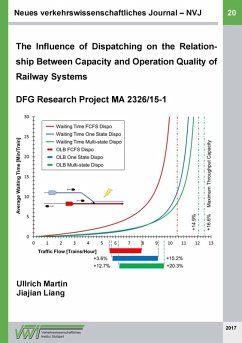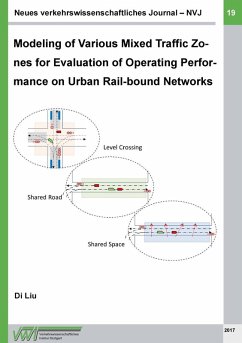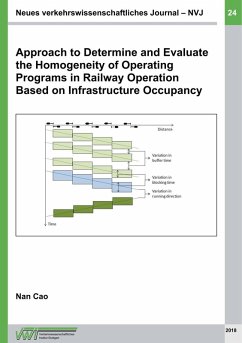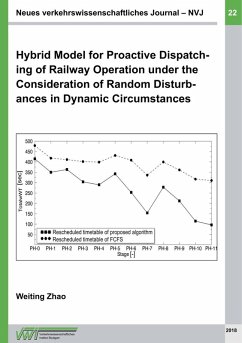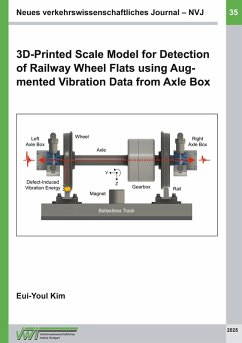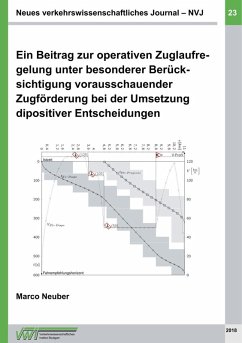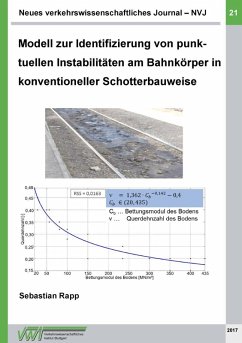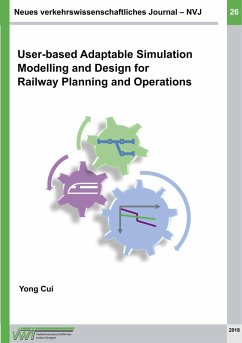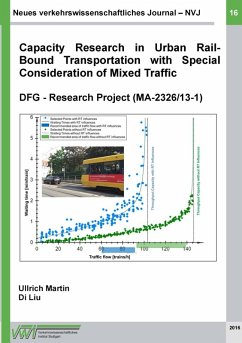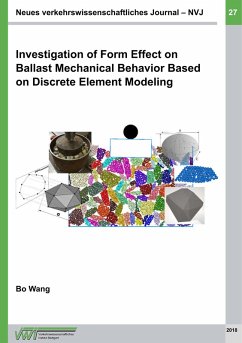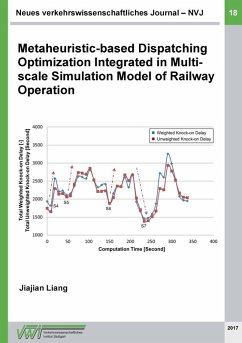
Neues verkehrswissenschaftliches Journal - Ausgabe 18 (eBook, PDF)
Metaheuristic-based Dispatching Optimization Integrated in Multi-scale Simulation Model of Railway Operation
Versandkostenfrei!
Sofort per Download lieferbar
Statt: 25,00 €**
19,99 €
inkl. MwSt. und vom Verlag festgesetzt.
**Preis der gedruckten Ausgabe (Broschiertes Buch)
Alle Infos zum eBook verschenkenWeitere Ausgaben:

PAYBACK Punkte
0 °P sammeln!
A railway system is a complex system. With the assistance of a railway operation control system, railway traffic is managed according to an operation plan. During the operation process, especially in railway networks with complex topology and high traffic flow, disturbances are likely to occur, which may result in severe deviations of train movements from the pre-designed operation plan. Once conflicts have occurred or potential conflicts between trains have been detected, suitable dispatching actions should be executed to minimize the negative impacts of the disturbances. In order to support ...
A railway system is a complex system. With the assistance of a railway operation control system, railway traffic is managed according to an operation plan. During the operation process, especially in railway networks with complex topology and high traffic flow, disturbances are likely to occur, which may result in severe deviations of train movements from the pre-designed operation plan. Once conflicts have occurred or potential conflicts between trains have been detected, suitable dispatching actions should be executed to minimize the negative impacts of the disturbances. In order to support dispatchers, a dispatching optimization algorithm was developed in this dissertation. In the development of dispatching models, two aspects need be considered: modelling of railway operation and the dispatching optimization algorithm. The former is indispensable to accurately assess the impact of disturbances, and the latter is employed to find solutions with minimal impact. In order to balance accuracy and computation complexity a multi-scale simulation model was developed in this dissertation. Dispatching optimization is a typical combinatorial optimization problem, and exhaustive search becomes impractical when there is a large set of possible dispatching solutions. To speed up the search, a widely used metaheuristic algorithm-tabu search - was adopted as the basis of the dispatching optimization algorithm. This dissertation addressed both multi-scale simulation and dispatching optimization in railway operation.
Dieser Download kann aus rechtlichen Gründen nur mit Rechnungsadresse in A, B, BG, CY, CZ, D, DK, EW, E, FIN, F, GR, H, IRL, I, LT, L, LR, M, NL, PL, P, R, S, SLO, SK ausgeliefert werden.




